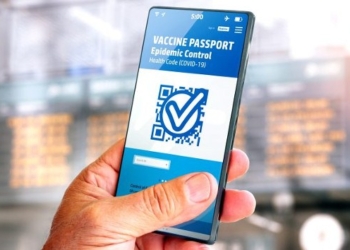Are you safe online? Or are you a potential victim of hackers? If you are reading this, then the chances are that you are worried about how safe you are when surfing the web. Keep reading below to find out how to protect yourself.
Everybody is talking about online security these days. With hacks, scams, hackers, malware, and more, the web seems to be a dangerous place. And, the growing use of devices, from smartphones, tablets, laptops, and even Internet-connected appliances, opens up to even greater risks and cybersecurity threats.
Yet, the good news is that even a small handful of security measures can significantly reduce our exposure to all these cyber threats. Here are four tips for staying safe online.

1. Use complex and strong passwords
We know you’ve heard this one before, but it is so important that it is worth mentioning it again. Creating complex and unique passwords significantly reduce the risk of being a victim of hackers or online scams.
How to create strong passwords and beat hackers? Well, first of all, stay away from the obvious like sequential numbers or letters. And, by no means use the word “password” as your password. Instead, think of unique passwords that do not include any of your personal information such as date of birth, your dog’s name, or your town name because if you are specifically targeted, these passwords will be the first the hackers will use to access your accounts.
Use letters, numbers, and unique characters in your passwords.
2. Use residential proxies
Residential proxies are a great tool to stay safe online because they help you keep your anonymity online. These servers give you an IP address other than the real IP address of your device. So, when you surf the web, the websites you access and make a search request on will not see your real IP but the proxy’s IP address. Thus, this makes you “anonymous” to the website you’re visiting.
Yet, when you want to buy static residential proxy, make sure you research the provider to ensure that they are trustworthy and protect your identity as promised.
3. Click smart
There are some tricks and tools that help you improve your chances of not being the victim of a cyberattack or online scam. Yet, besides that smart tech measures, you also need to make sure that you don’t invite cyber threats with careless clicking yourself.
If you want to make sure that you avoid becoming a victim of phishing or social engineering, avoid clicking on any suspicious link sent to you by an email address or person you don’t personally know or trust.
4. Be a selective sharer
These days, it seems like a normal thing to share personal information online, right? You share your name, favorite book or food, photos of your dog, and much other stuff with your social media friends. Yet, while sharing a photo of your furry friend might not necessarily be a threat to your online security, sharing really personal information like address, email, phone number, or financial details is definitely a no-no. Such information can be used by hackers to steal your identity and wreak havoc in your life or finances.














